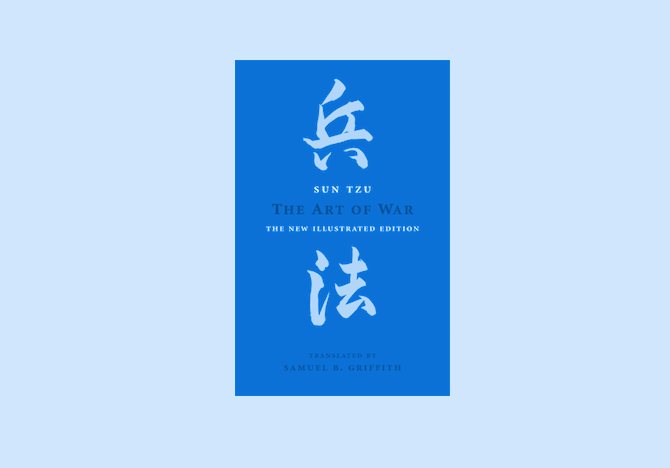Using the thousand-year-old knowledge of Chinese thought
If there is a book that has crossed the ages and that comes to us from the East, it is this one. It was written by a Chinese general of the 5th century with Jesus Christ. Its purpose is clear, it is to give the basics of military strategy to its readers. The teachings that are given in this book go beyond war even if it is the initial object of the book. It transmits knowledge that can be applied to civilian life and in particular to the power games that took place at the emperor’s court. Today this book is world famous and is read by both seasoned diplomats and ordinary people seeking answers to questions of strategy. It can be used to thwart the tricks of your opponents, it can indeed give you the principles and tactics that you can use to become less victim of shenanigans. Let’s look at the key principles of the book.
The book is designed to lead you to victory in whatever you do. It requires both method and preparation to get where you want to go. The idea is also to save your resources to get there.
Winning in the best way is to win without fighting. Sun Tzu shows us the precepts to implement to apply this idea.
Dominate the 5 criteria for victory
Time: mastering timing means acting at the appropriate moment in operations
Doctrine: assimilate the principles of war and stay on course without deviating
Space : choose a favorable terrain for the strategy you are applying
Command: to show magnanimity, love and compassion towards one’s troops. To be in the spirit of knowing how to die like them.
Discipline: apply the recommendations and maintain the role of each one to the tasks that are due to him
To win the war, make good use of your troops. Do not mobilize them without using them. Inaction is a poison for the army.
You must keep your military campaigns as short as possible. You owe it to yourself to save your troops as they are precious resources. You will gain nothing by prolonging a war.
The spirit of preparation
To win, you must sabotage your opponent’s plans before he can carry them out. You have to nip the strategy in the bud, so to speak. Knowing how to break your opponents’ alliances is equally important. Only after you have done this can you begin to fight the battle if you must.
First and foremost, you need to define a plan that is in line with your goals. If you don’t have a clear goal, you are not likely to achieve it.
The good warrior wins before he starts the battle. The bad warrior has lost before he has begun to fight.
The art of sending opposite signals
A general is victorious when he knows himself and his opponent. To win, therefore, our competitors must not have access to what we are and what we do. This results in the need to send messages opposite to what we do so that the enemy cannot strategize accordingly. The less he knows, the more you will have a decisive advantage when conducting offensive maneuvers. A surprised opponent is half defeated. Take advantage of your troops’ morale: attack when it is highest and defend against attacking when enemy morale is highest.
You must decide based on the information you receive
You have an objective and an initial plan. Your objective should not change, but your plan must be flexible to evolve as circumstances change. Do not be rigid in your strategy, otherwise you will make the worst decisions. As you move forward, you must be able to adapt your plan so that it makes the most of new circumstances.
The Way
To win, you need to have the support of the population. You have to be fair to the civilians. You have to show respect and loyalty in peacetime. When a conflict breaks out, you are better able to get the support of the population, which is essential in a war. Civilians will more easily take part in the defense but will also volunteer to join your ranks.
The weather
You must fight by making the weather an ally. More generally, military operations are conducted during the warm season. You must adopt a strategy that takes into account the climate and take the offensive when it is unfavorable for your opponent’s maneuvers.
Terrain
The terrain acts like the climate. You must take it into account for your operations so that it is an advantage for you and a disadvantage for your opponent.
Leadership
The general must above all possess irreproachable human qualities in order to be liked by all and to create loyalty. He must be intelligent, trustworthy, humane, courageous and austere in some way. He must show that he is also in the service of power and that people admire him in some way for the qualities he is able to demonstrate.
Discipline
Knowing how to assign the right people to the right jobs, allocating the right resources to the right functions, this is what discipline means. Maintaining order and hierarchy is also important.
Additional ideas:
- In chaos, there is always an opportunity.
- Never do anything out of spite or anger.
- Only act when there is something to be gained, otherwise be patient if there is not.
Receive inspirational ideas:





